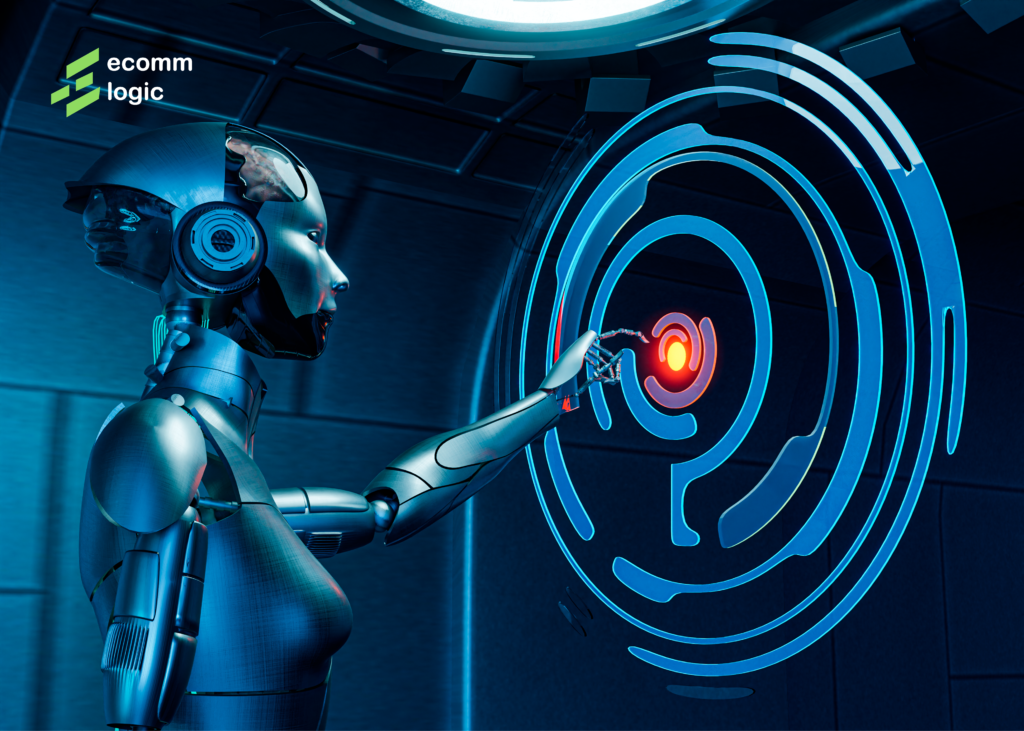Artificial Intelligence (AI) is quickly transforming digital marketing, opening new opportunities for brands to engage with customers more effectively. As we look to the future, it’s clear that AI will continue to reshape marketing strategies, optimize campaigns, and enhance customer experiences. In this blog, we’ll explore the key trends and predictions surrounding AI in digital marketing.

1. Personalization at Scale
AI has already made a significant impact in personalized marketing. By analyzing vast amounts of data, AI can provide tailored experiences for individual users. This includes personalized emails, product recommendations, and even custom content.
In the future, AI will evolve to predict customer preferences before they’re expressed. With machine learning and natural language processing (NLP), AI will enable brands to offer hyper-personalized experiences that feel natural and relevant to each user. This will not only improve customer engagement but also boost conversion rates, driving business growth.
2. AI-Powered Content Creation
Another field where AI is causing a stir is content production. Blog entries, social media updates, and even product descriptions may already be written by AI systems. These tools utilize deep learning algorithms to mimic human writing, making content creation more efficient.
Looking ahead, AI will expand beyond written content. Video editing and interactive content generation will become more advanced, allowing brands to produce high-quality multimedia content in a fraction of the time. AI will also enable dynamic content that adapts to users’ behavior, creating a more personalized experience for consumers.
3. Predictive Analytics for Smarter Decisions
AI-powered predictive analytics is transforming the decision-making process for marketers. AI can forecast future trends, consumer behavior, and ad success by examining past data. This allows brands to optimize their strategies and budgets for maximum impact.
In the future, AI’s predictive capabilities will improve even further, providing real-time insights that help marketers adjust their campaigns on the fly. This will make it easier for brands to stay ahead of industry trends, anticipate market shifts, and quickly respond to changing consumer behaviors.
4. AI-Driven Chatbots and Customer Service Automation
AI-powered chatbots have already revolutionized customer service. These intelligent bots can handle a variety of customer queries, resolve issues, and even recommend products based on user preferences. As AI technology improves, chatbots will offer even more natural and human-like conversations, enhancing the customer experience.
Looking ahead, AI-powered virtual assistants will become even more sophisticated, handling complex inquiries and providing 24/7 customer support. By lowering the need for human interaction and increasing overall customer happiness, this will enable companies to grow while preserving excellent service standards.
5. Voice Search Optimization
An increasingly significant component of digital marketing is voice search. With the rise of voice-activated devices like Amazon Alexa and Google Assistant, consumers are relying more on voice queries to find products and services. Understanding and responding to voice search requests requires AI.
As voice search continues to grow, businesses will need to optimize their content for voice queries. This includes focusing on conversational keywords and developing content that aligns with natural language patterns. AI will continue to refine voice search algorithms, delivering more accurate and relevant results for users.

6. AI in Programmatic Advertising and Ad Targeting
Programmatic advertising, which uses AI to automate the buying and placement of ads, is already making waves in digital marketing. AI allows brands to target the right audience with precision, based on real-time data. By enabling marketers to display highly relevant advertisements at the right time, this increases the likelihood of conversions.
In the future, AI will enhance programmatic advertising by further refining audience segmentation and improving ad targeting. Ads will become more dynamic, changing in real time according to the activities and interactions of users. This will lead to more effective ad campaigns with a higher return on investment.
7. Ethical AI and Privacy Concerns
As AI becomes more integrated into digital marketing, privacy and ethics will continue to be a major concern. With stricter data regulations like GDPR and growing consumer awareness of data privacy, brands will need to ensure that their AI-driven strategies comply with privacy laws and ethical standards.
In the future, businesses will focus on creating transparent AI systems that prioritize user privacy. AI will need to be designed with fairness in mind, avoiding biases that could negatively affect certain consumer groups. Marketers will also need to balance the benefits of personalization with the protection of customer data.
Conclusion
AI’s role in digital marketing will continue to grow, offering businesses more ways to engage with consumers, improve their strategies, and deliver personalized experiences. AI is changing the marketing environment in a number of ways, including content generation, predictive analytics, and automated customer support.
In order to stay ahead of the curve, marketers will need to adjust as AI technology develops. By embracing AI-driven tools and strategies while maintaining ethical standards, businesses can unlock new opportunities and achieve greater success in the digital age.
At EcommeLogic, we’re excited to see how AI will continue to innovate the digital marketing space, empowering brands to connect with their audiences in smarter, more efficient ways.

